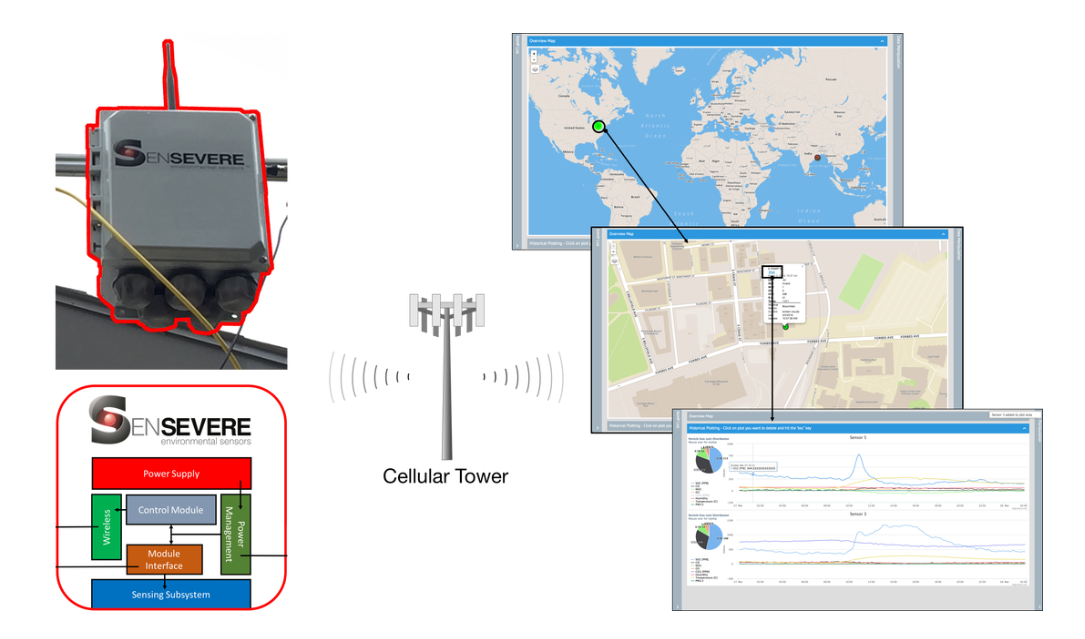
Air Quality Monitoring for Smart Cities: Municipal pollution targets, emissions reduction, and human health (Stage 1)
Polluted air can sometimes go undetected. And its harmful side-effects can wreak havoc on the human body. Have you ever wondered about the quality of air you breathe at home, at work, and in between? Do you bicycle to work for the exercise benefits (or want to!), but worry that it increases your exposure to air pollution?
The Real-time, Affordable, Multi-Pollutant (RAMP) air quality monitor measures carbon monoxide (CO), nitrogen dioxide (NO2), sulfur dioxide (SO2), ozone (O3), and fine particulate mass (PM2.5).
Since 2016, this project has deployed and operated a network of low-cost RAMP air pollutant sensors in Pittsburgh and surrounding Allegheny County. The RAMPs measure gas-phase (CO, CO2, O3, NO, NO2 and SO2) and particulate pollutants (PM2.5). Our dense sensor network provides real-time, neighborhood-level air pollutant data, and to the best of our knowledge is the largest long-term network of low-cost air pollutant sensors in the U.S.
Project Update (April 2020)
Various new methods were developed: Tomographic methods for air quality assessment from digital imagery and methods for the automatic detection of visual air quality cues from live video feeds. These methods along with a web-based air quality monitoring system permit novel ways to monitor air quality with relatively inexpensive equipment (cameras, as opposed to costly air quality sensors). Concerned citizens can use these tools and data to provide evidence backing their concerns to policy makers
This project has worked with concerned communities to install cameras for observing the environment. A public website is being developed as an air quality monitoring system consisting of visualizations of captured data and notable events (Breathe Cam). When a video was showed to the acting director of the EPA from the Region III Air Protection Division in Philadelphia, they pointed at the screen and said: "But what I see in the video, is totally unacceptable." These tools were developed to help empower residents seeking to improve the air quality in their community. For example, the citizen campaign — which this project was involved with — to shut down a coke plant on Neville Island. After the plant shut down asthma visits to the ER were dramatically reduced.
Project Partners
SenSevere
https://sensevere.com/
Department of Mobility and Infrastructure, City of Pittsburgh
http://pittsburghpa.gov/domi/index.html
Project Team
Albert Presto
Project Lead, Associate Research Professor, Mechanical Engineering, Carnegie Mellon University
R (Subu) Subramanian
Research Scientist, Mechanical Engineering, Carnegie Mellon University
